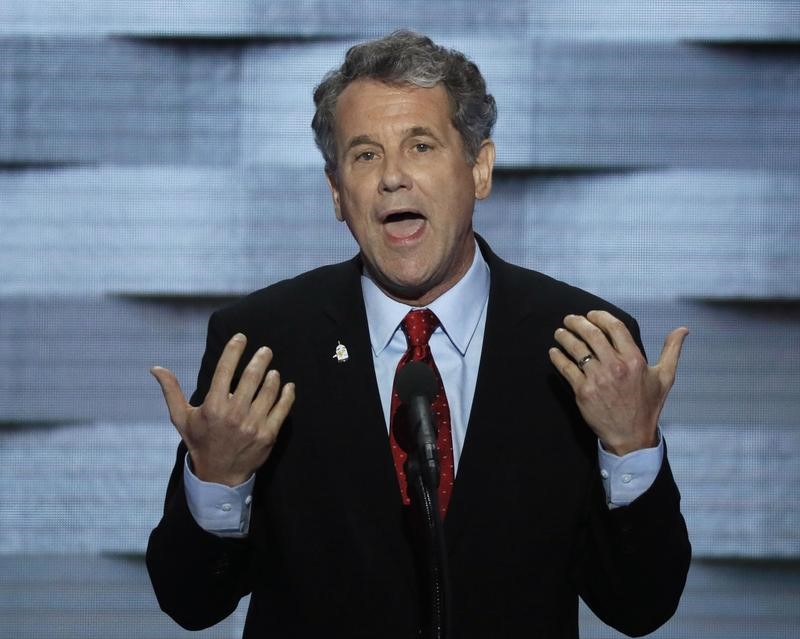By Lisa Lambert
WASHINGTON (Reuters) - Two lawmakers and six consumer advocacy groups on Thursday sought to join a court case involving the U.S. consumer financial watchdog as worries that President Donald Trump will dismantle the agency reached a fever pitch.
Democratic Senator Sherrod Brown of Ohio and Representative Maxine Waters of California petitioned a federal court to be allowed to intervene on behalf of the Consumer Financial Protection Bureau in its appeal of a decision that its structure is unconstitutional.
Meanwhile, six groups including U.S. Public Interest Research Group made a similar request.
The ruling, that the president should be able to remove CFPB Director Richard Cordray at will, has been stayed pending appeal. Currently the director can only be fired for cause.
The filings followed a request from state attorneys general to also be able to intervene in the case.
Currently the whole U.S. Court of Appeals for the District of Columbia Circuit is deciding whether to review the ruling in a case brought by mortgage servicer PHH Corp (PHH.N). It could announce it will take the appeal, which most watchers expect, as early as next week.
Republicans want Trump to remove Cordray, saying the director has gone beyond his authority and provided cause to be fired. Trump has met with former Texas Representative Randy Neugebauer, a CFPB critic, indicating Trump is already seeking Cordray's replacement.
Also, Republican Senator Deb Fischer, of Nebraska, recently introduced legislation to put a commission in charge of the CFPB, and there is a good chance it will become law.
"There’s quite a lot of reasons to be concerned," said Michael Burr, faculty director at University of Michigan's Center on Finance. "It would be devastating to the very people who supported President Trump to attack and dismantle the CFPB."
The CFPB, created in the 2010 Dodd-Frank Wall Street reform law to guard individuals from fraud in mortgages, student loans and other financial products, does not need permission from the Justice Department to file cases in courts below the Supreme Court.
That means Trump may also ask the Justice Department to file a brief in opposition in the appeal, essentially setting two agencies against each other, said Mark Calabria, who studies the CFPB for the conservative Cato Institute.
